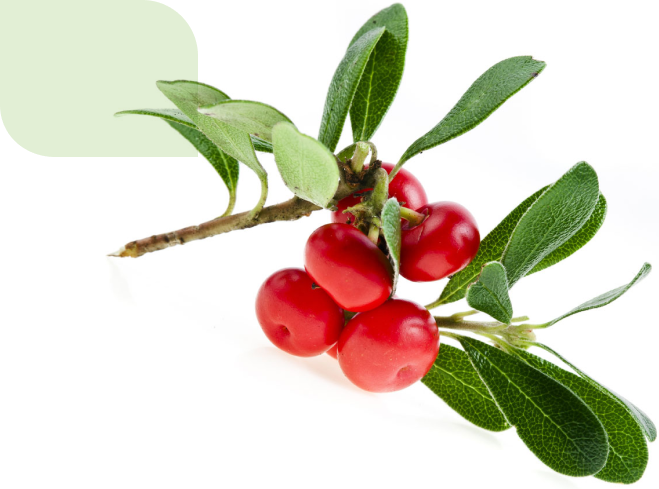
Antibacterial effect1,2:
Bearberry leaves

Bearberry (Uva ursi in Latin) is an evergreen creeping shrub which, like blueberry, is a member of the heather family. It has been known as a medicinal plant since the Middle Ages and is first mentioned in English herbal books as far back as the 13th century.
We now know that the leaves of the bearberry plant contain substances which exert an antibacterial effect by killing the most common causative organisms of urinary tract infections 1,2,3. The substances contained in bearberry leaves also have anti-inflammatory effects and may therefore promote healing of the inflamed mucous membranes of the lower urinary tract (e.g. bladder).
Since 1994, these properties have been "officially recognised": The antibacterial effect is confirmed and its use in inflammatory conditions recognised in the monograph of Committee E of the Bundesgesundheitsamt (former German regulatory authority for medicines)4.



Medicinal plants in urology
In inflammatory conditions of the lower urinary tract, for cleansing and preventive treatment of kidney stones and sludge, Bearberry leaves and goldenrod, orthosiphon and restharrow in particular have proven effective.
The pharmaceutical quality of the starting materials is tested in accordance with the state of the art and pharmacopoeial standards (pharmacopoeia = official compendium of medicinal products). The standard manufacturing procedures used by Schaper & Brümmer guarantee the consistent quality of the extracts.
Guide to urinary tract infections
Herbal medicines
for cystitis
Our guide to urinary tract infections offers you tips and hacks on the subjects of acute cystitis and recurrent urinary tract infections. So urinary tract infections don't have a chance, use our guide to find out more about our plants: bearberry leaf, goldenrod, orthosiphon and restharrow.

